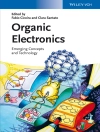‘Molecular Gels: Materials with Self-Assembled Fibrillar Networks’ is a comprehensive treatise on gelators, especially low molecular-mass gelators and the properties of their gels. The structures and modes of formation of the self-assembled fibrillar networks (SAFINs) that immobilize the liquid components of the gels are discussed experimentally and theoretically. The spectroscopic, rheological, and structural features of the different classes of low molecular-mass gelators are also presented. Many examples of the application of the principal analytical techniques for investigation of molecular gels (including SANS, SAXS, WAXS, UV-vis absorption, fluorescence and CD spectroscopies, scanning electron, transmission electron and optical microscopies, and molecular modeling) are presented didactically and in-depth, as are several of the theories of the stages of aggregation of individual low molecular-mass gelator molecules leading to SAFINs. Several actual and potential applications of molecular gels in disparate fields (from silicate replication of nanostructures to art conservation) are described. Special emphasis is placed on perspectives for future developments.
This book is an invaluable resource for researchers and practitioners either already researching self-assembly and soft matter or new to the area. Those who will find the book useful include chemists, engineers, spectroscopists, physicists, biologists, theoreticians, and materials scientists.
Содержание
Materials-Chirality.- Theory.- Theory of Molecular Association and Thermoreversible Gelation.- Growth and Chirality amplification in Helical Supramolecular Polymers.- Self-Assembling Peptide Gels.- Kinetics of Nucleation, Aggregation and Ageing.- Soft Glassy Rheology.- Rheological Chaos in Wormlike Micelles and Nematic Hydrodynamics.- Wetting of Fibers.- Techniques.- Gel Formation: Phase Diagrams Using Tabletop Rheology and Calorimetry.- Direct-Imaging and Freeze-Fracture Cryo-Transmission Electron Microscopy of Molecular Gels.- Molecular Gels and Small-Angle Scattering.- X-Ray Diffraction of Poorly Organized Systems and Molecular Gels.- Optical Spectroscopic Methods as Tools to Investigate Gel Structures.- Circular Dichroism for Studying Gel-Like Phases.- Systems — Organogels.- Low Molecular-Mass Organic Gelators.- Design and Function of Low Molecular-Mass Organic Gelators (LMOGs) Bearing Steroid and Sugar Groups.- Safin Gels with Amphiphilic Molecules.- Systems — Hydrogels.- Advances in Molecular Hydrogels.- Aqueous Gels Made of Chiral Lipid- and Porphyrin-Amphiphiles.- Analyses of Specific Systems.- Rheology of Wormlike Micelles: Equilibrium Properties and Shear Banding Transitions.- Cryo-Tem, X-Ray Diffraction and Modeling of an Organic Hydrogel.- Gelation of a Liquid-Crystalline L? Phase Induced by the Proliferation of Topological Defects.- Applications.- Gels of Liquid Crystals and Ion-Conducting Fluids.- Electron Conducting and Magneto-Sensitive Gels.- Photoresponsive Gels.- Gels of Low Molecular-Mass Organic Gelators as Templates for Transcription.- Responsive Molecular Gels.- Gels as Cleaning Agents in Cultural Heritage Conservation.
Об авторе
Richard G. Weiss is Professor of Chemistry, Department of Chemistry, Georgetown University, Washington, DC, USA.
Pierre Terech is Research Director, CNRS – Atomic Energy Center – Grenoble University, Grenoble, France.












